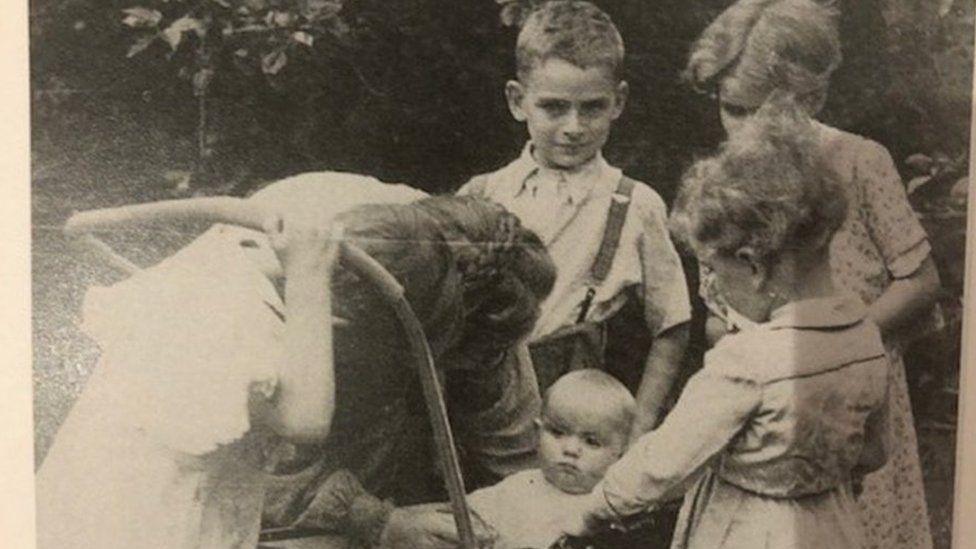Alderney considers conservation status for camps
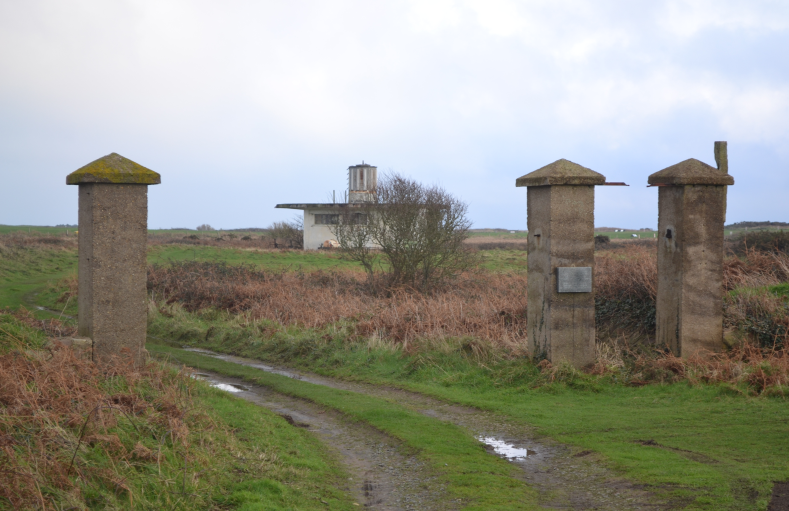
The States of Alderney will consider giving protected status to three camps, to bring them in line with Lager Sylt
- Published
Former Nazi camps in the Channel Islands could soon be given conservation status, the president of the States of Alderney has confirmed.
William Tate said he would also like to create a memorial in honour of "new" individuals identified to have suffered torture and murder at the hands of Hitler's regime on British soil.
Mr Tate said there were already information plaques at the four sites.
Lord Eric Pickles, who led an inquiry into deaths at the camps, said the dead and those who suffered should be "remembered".
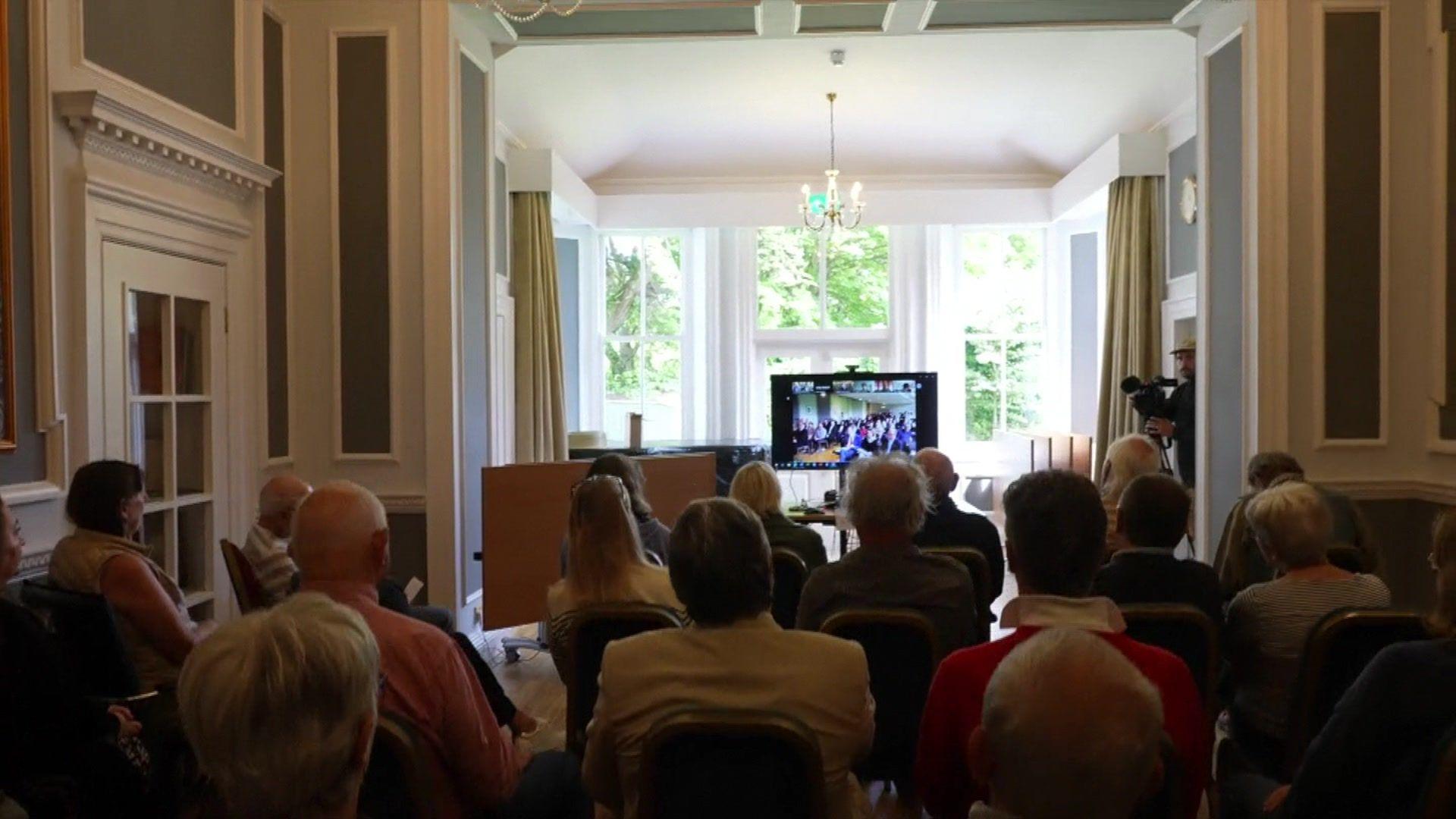
People from Alderney watched the inquiry launch from the Island Hall
Referring to the report, Mr Tate described a "deep sense of relief" that tens of thousands of prisoners had not died, as "borne out by the evidence".
He said he also felt "sadness" that people had lost their lives they did not know about, but said those individuals could now be remembered.
"It is so important that we never forget."
He said: "I think what we can do moving forward is we can make much better use of technology, we have now put up information boards at the three remaining camps, we will, I hope, put the camps into the conservation area to allow a degree of protection."
Mr Tate cited a wish to create a new memorial in recognition of the report, adding: "It could be the names of all the victims... a new place where people can go and reflect.
"What we always commit to as a community is we will continue to improve the ways in which we get the information out there because it is part of our story and if you want to understand Alderney you have to understand all of it."
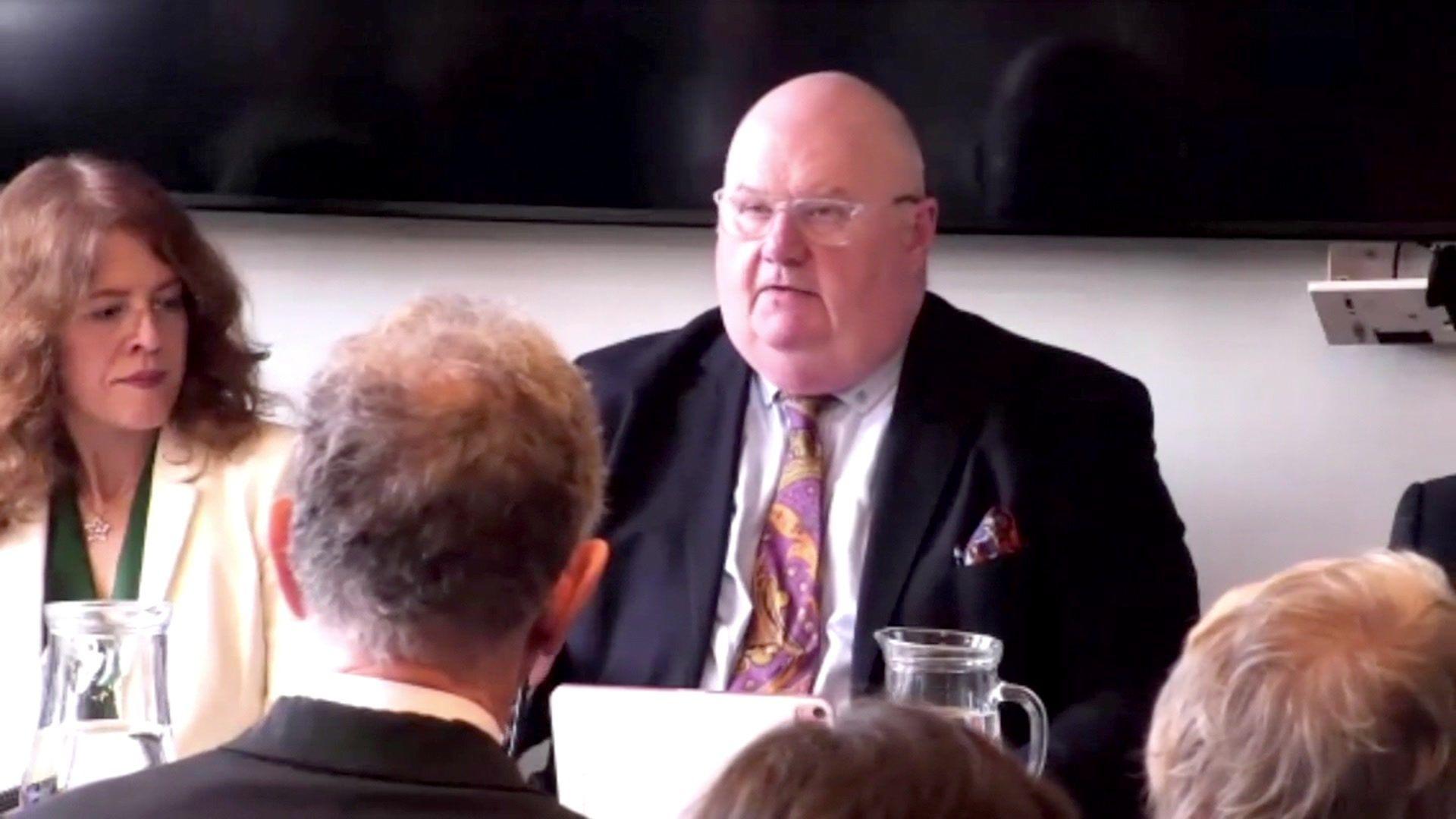
Lord Eric Pickles had convened the panel of academics
Earlier at a press conference, he said the States would work with Lord Pickles on memorials, describing the support from the panel as "invaluable".
Lord Pickles said he felt more meaningful than "apologies" over the lack of justice for those who oversaw the brutality on Alderney, was the report itself, and to "look after the sites".
He said Mr Tate had been "absolutely excellent" throughout the process, while also referencing "some" obstructive people.
"I've been surprised at the level of anger and the level of angst and I think this draws a line," he added.
The panel had been "in discussion" with the International Holocaust Remembrance Alliance (IHRA), he added, in regard to its "charter on preserving sites".
"We want to work closely with the States of Alderney to get the sites marked up... get displays there... to ensure the dead and those that suffered are remembered."
Jurat Colin Partridge OBE, - the only member of the panel from Alderney - said he felt privileged to have been part of the project and he hoped the report would be the "basis for future memorialisation".
He said he "liked to believe" there was a "collective will" on the island to memorialise workers and end "acrimonious debate and contrary views".
"Some people say why are we looking back that far... well I believe we need to make a marker on which we can base our future appreciation and memorialisation."
He suggested a "book with names in, some kind of record" to remember the workers.
"It would be really nice for the world to know that there is a record here of those people who died far away from their own countries and families and for those descendants of those workers maybe to come and find out a bit more about the history and how they died."
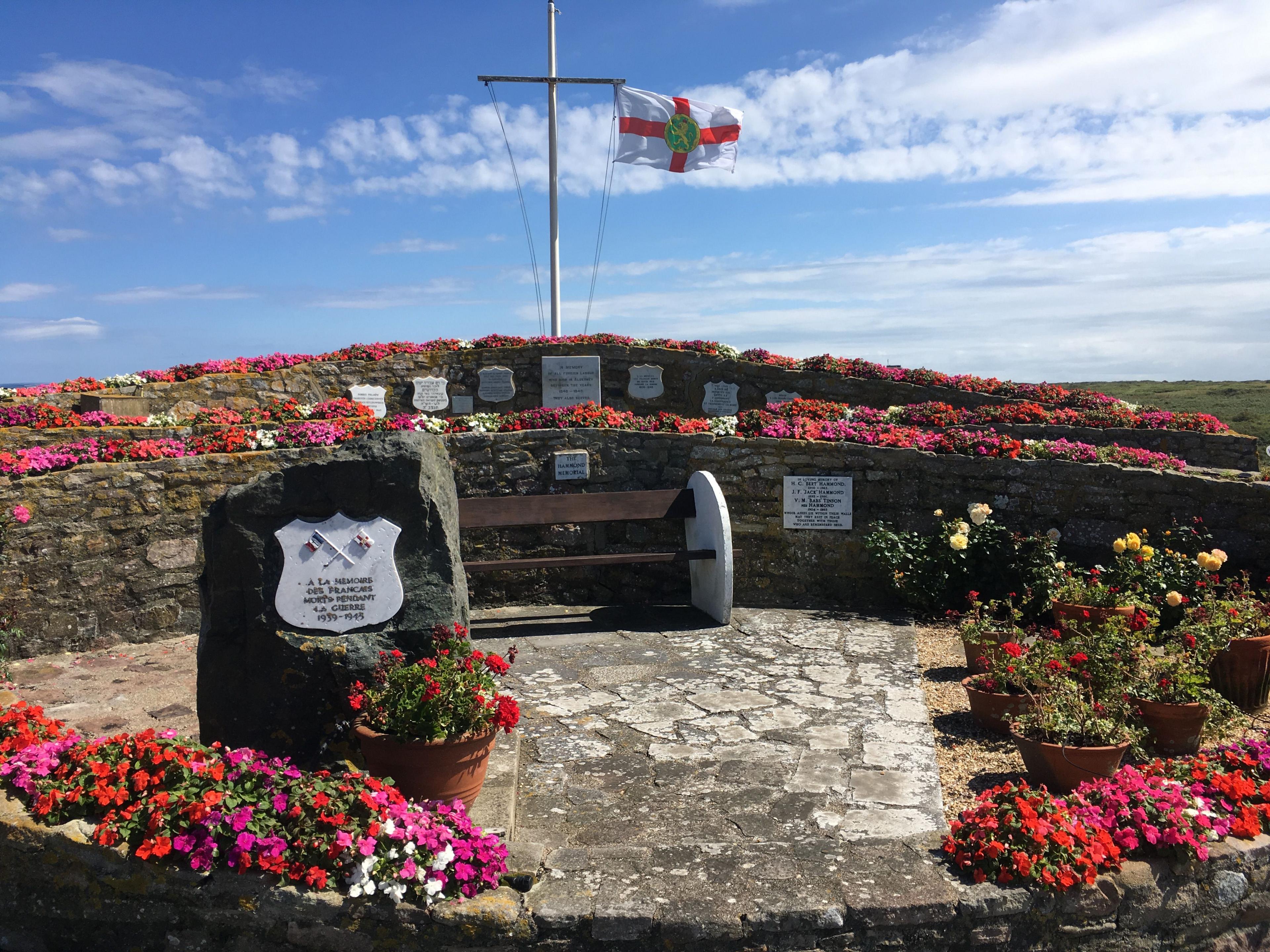
Those who lost their lives are remembered at the Hammond memorial
Dr Gilly Carr, panel member and representative from the IHRA, said information plaques at the sites were an "important start", and referred also to the Occupied Alderney website, launched as part of the review, which would "continue to be updated with stories".
She referenced a visit to Alderney in 2021, when eight recommendations were handed to Alderney leaders.
These were to:
Improve mapping, liaising with the Land Registry to ensure sites relating to the German Occupation are included
Produce a dedicated website
Provide education materials for schools
Ensure the four labour camps and other sites of historic interest were “listed”
Stage an exhibition (virtual or in-person)
Provide signage at all sites
Mark the boundary of the burial site on Longis Common
Provide new exhibits for the Alderney Museum
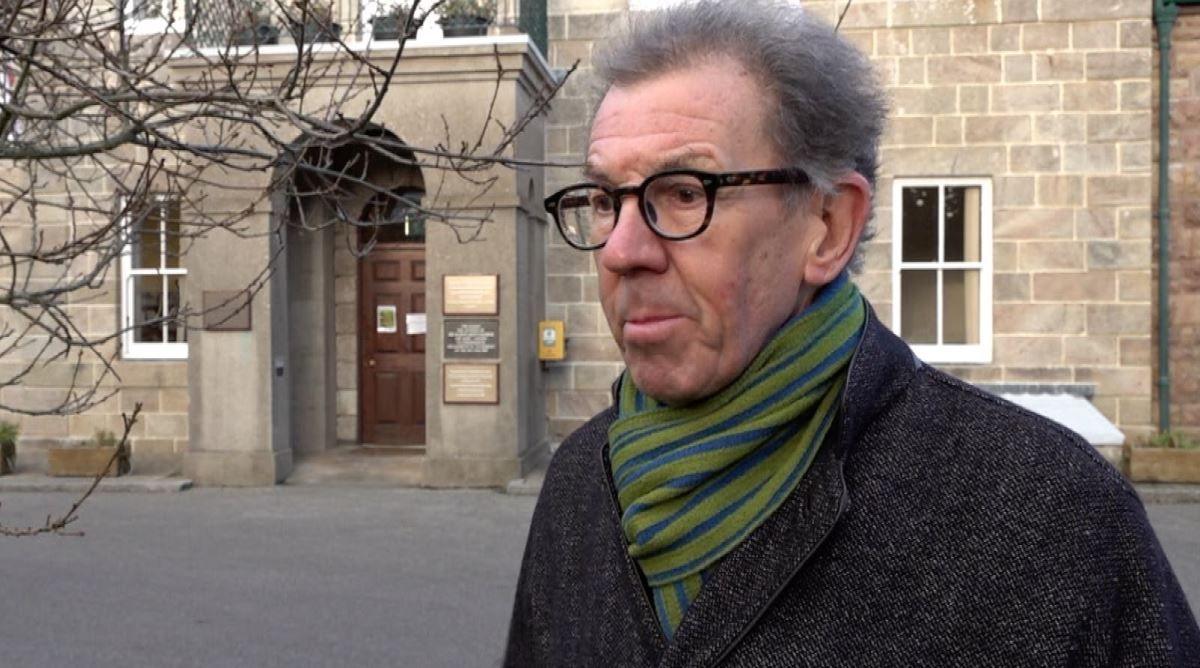
William Tate, President of Alderney States, said they would seek to give all four camps protected status
Mr Tate said their work to memorialise would be a "moving feast", with the Building and Development Control Committee looking at heritage status for the sites of the Nazi camps.
He thanked the panel for their "tireless" service, and said it had "gone to the root of what makes Alderney the place it is".
Following their visit in 2019, the IHRA observed Lager Norderney was "being used as Alderney's holiday camp site", Lager Borkum was "at the entrance to the road leading to the island's tip, while Lager Helgoland "had a house built on it".
It said the eight recommendations were intended to "help safeguard the record in a sensitive manner empathetic to the Alderney community".
Alex Snowdon, member of the States of Alderney, said he would be "interested to understand a little bit more" about how the report's findings might impact memorials and education.
"I think it’s also it’s really really important that we do highlight the information boards are at the sites," he said.
"The States of Alderney in my view has been quite proactive in making sure the information is there."
Mr Snowdon queried why the launch of the report had not taken place in Alderney, adding: "It would have been good to have some sort of presentation in Alderney and also question and answers for the people of Alderney."
He said such an event would be "valuable" going forward.
Additional reporting by Robert Hall.
Follow BBC Guernsey on X (formerly Twitter), external and Facebook, external. Send your story ideas to channel.islands@bbc.co.uk, external.
Related topics
- Published22 May 2024
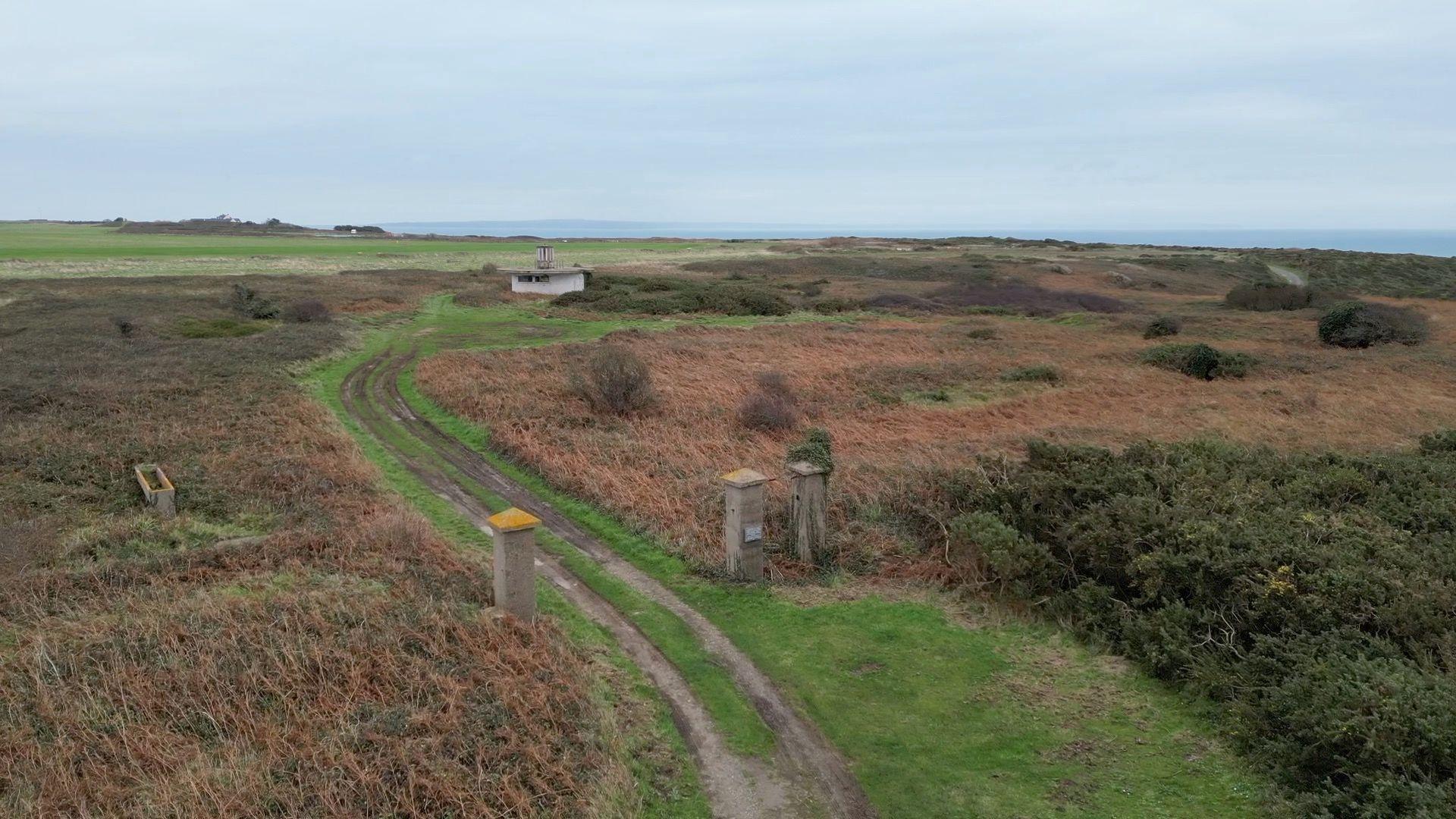
- Published22 May 2024
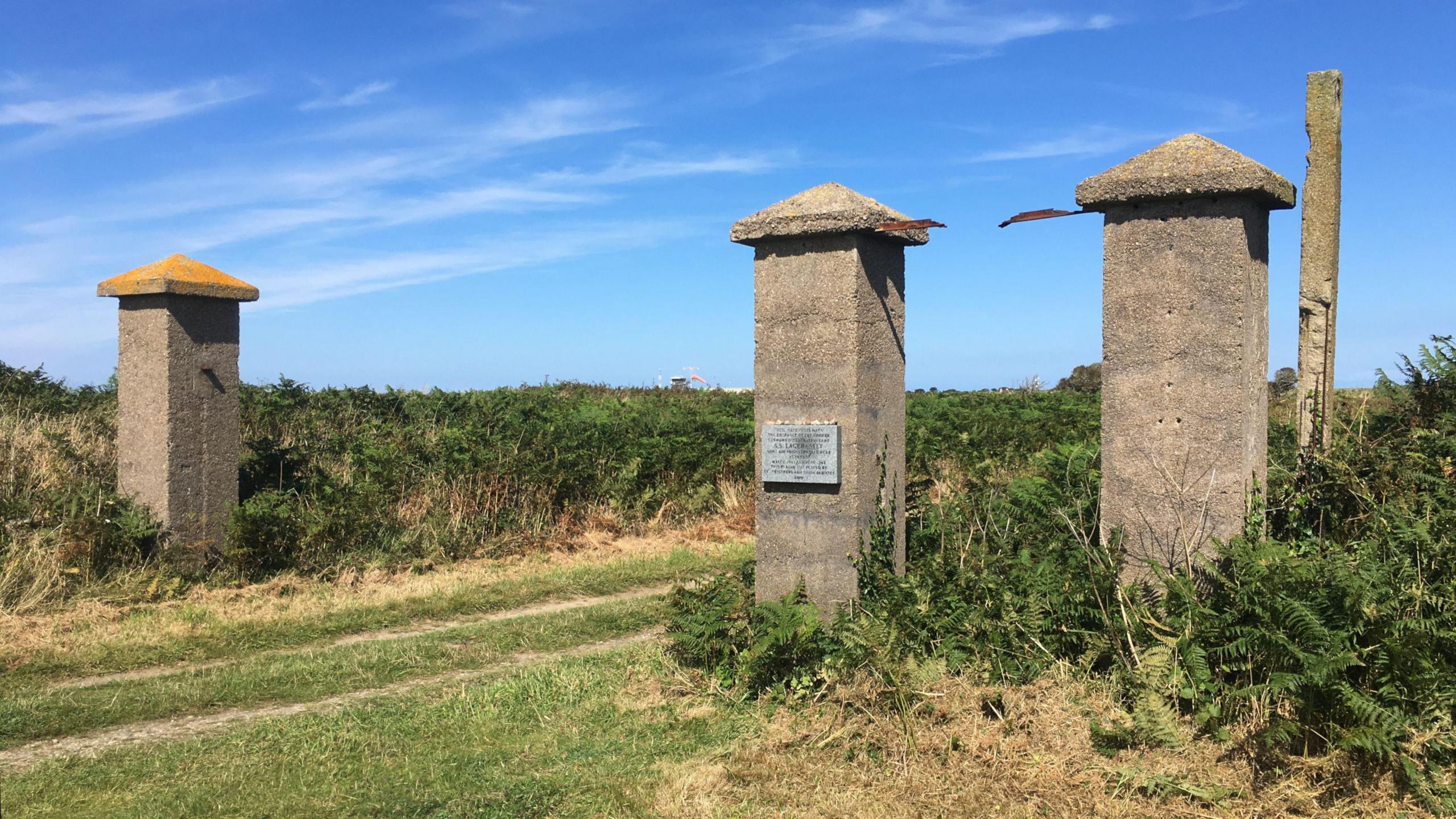
- Published21 May 2024
